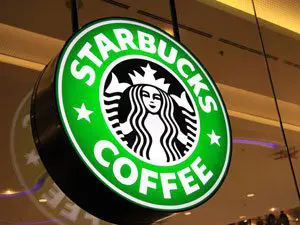
DEARBORN — Whenever tensions in the region escalate, the movement to boycott Israeli affiliated products and companies seems to always re-ignite.
The Boycott, Divestment and Sanctions (BDS) movement has gained major traction in recent years across colleges and universities, as student-led initiatives have called for their schools to divest from Israel.
However, there seems to be a major divide among the BDS community when it comes to boycotting companies or products affiliated with Israel. Often, prominent name brands are listed among the companies that should be boycotted, which has caused a conflict in the local Arab American community.
Whether it’s a company that has contracted services through Israeli prisons, a company that sends proceeds to the Israeli military, or a company that was formed in Israel and has garnered name brand recognition in the U.S., they have all secured a spot on circulating boycott lists. But the companies that seem to ignite the most arguments regarding boycott are worldwide-recognized name brands that appear to have branches in Israel, or did at one point.
The most recognizable name brands on the list include McDonalds, Coca-Cola, Motorola, HP, Nestle, Revlon, Ralph Lauren and Starbucks.
Starbucks in particular has gained a reputation in the local community for notoriously being a pro-Zionist company, yet a lot of that appears to be based on misinformation.
In fact, within the last year, any strings that had connected Starbucks to Israel appear to have been cut. The company closed down all six of its locations in that country earlier this year, dissolving its joint partnership with Shalom Coffee Co., which helped operate the Starbucks locations in Israel.

While Starbucks did not get into specific reasons as to why it decided to close shop in Israel, it did hint that it was an economic decision.
Perhaps the root of the myth that Starbucks supports Israel comes from the fact that the founders are of Jewish descent and must, therefore, be pro-Zionist. But what people seem to forget is that in the U.S., the company is often franchised and operated by independent owners. In Michigan, several local Arab Americans operate Starbucks locations.
What’s more, it’s just as much a fallacy to assume that all Jews have the same political beliefs as it is to make that assumption about all Muslims or Catholics or Presbyterians or Hindus or any other religious group.
McDonalds also gets a bad rap for operating a handful of locations in Israel, yet to its credit— and unknown to most— the company refused to open up a branch in a West Bank Jewish settlement last year, because it enforced a policy of staying out of occupied territories. Zionist organizations were disgruntled with the company’s policy and spoke out against it.
“McDonald’s has gone from being a for-profit company to an organization with an anti-Israeli political agenda,” said the Yesha Council, an umbrella of municipal councils of Jewish settlements in the West Bank.
So if even the Zionist lobby has spoken out against McDonald’s for being anti-Israeli, why does the company continue to appear on Israeli company boycott lists? Where is the line drawn when it comes to boycotting Israeli-affiliated companies and products? Should a company be on the boycott list simply because they may be conducting business with Israel? A debate on Facebook drew some differing responses, regarding how extensive the boycott should be.
“Looking through a scope of justice, it should be mandatory to boycott,” one Facebook user said. “One dollar to these Zionist supporters is killing your brother or sister in Palestine and Lebanon. It shouldn’t be a matter of whether we can escape it or not, but we have other options as substitutes for products we like.”
“It’s not impossible, but it’s very difficult,” another user said. “Because their supporters are so vast in numbers, boycotting these products and companies won’t happen over night. The best way to do it is slowly, but surely.”
“You all support Israel by paying your taxes,” a third user quipped.
The above comment may be an understatement. Annually, American citizens give $21.59 billion in military aid to Israel. This factor alone tends to be the most cited reason by local naysayers who chose not to participate in the boycotting of companies and products affiliated with Israel.
Perhaps the best route the community can take would be to do some research and focus on companies that were either created in Israel and have garnered huge popularity in the U.S. today, or companies who are closely affiliated with the Israeli military.
Those companies include Sodastream, which sells sparkling water and flavored drinks at national supermarkets; and Sabra Hummus, which specializes in Middle-Eastern dip chips and has found its way inside of millions of American refrigerators. On its website, Sabra Hummus even boasts about providing food for Israeli military trainees.
Other companies closely affiliated with Israel include Tribe Hummus, Ahava and Hewlett Packard, which owns EDS Israel, a division that provides technology to Israeli defense.






Leave a Reply